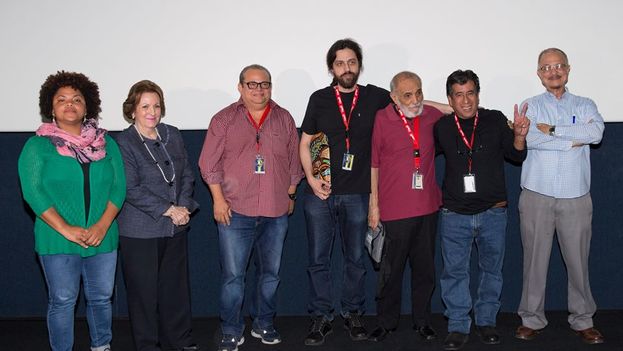
Regina Coyula, 14 June 2017– Jorge Enrique Lage interviews Miguel Coyula (excerpts) 4
… at many times during the interview, Alcides interrupted himself and began to speak to Fidel as if he were right in front of him. It’s something one saw a lot in our parents’ generation: bothered by something Fidel was saying on TV and arguing with him, but supposedly there was no one listening inside the box. Documentaries offer that opportunity, that fantasy secret for many.
For me the film is a love-hate story between two men and a woman. The men are Rafael Alcides and Fidel Castro; the woman is the Revolution. Alcides lost her, and deeply resents the man who snatched her from him to dominate her, strangle her, and make her into an unrecognizable ghost. But in spite of it all, Alcides continues loving her somehow.
When he died I said that one of my actors had died, but Fidel appears in Memories of Development, Nobody, and Blue Heart. In the three films, I had to listen to many hours of his speeches and conversations to be able to edit and construct the dialogs in them. I can tell you it was pretty exhausting to work with him, who’d succeeded in telling me the lines I needed. But definitely he was one of the great actors of the 20th Century, including at the beginning of the 21st.
Supposedly, now one can read it as a great hallucination too, but when Alcides speaks, he addresses him in the present, as if he were alive. This doesn’t come out of nowhere. Anyone who reads Granma and reads the recycled quotes from Fidel in every issue can, as in the persistence embedded in all the talking heads you see on Cuban television, arrive at the conclusion that we’re being governed by a dead man.
Translated by: JT
